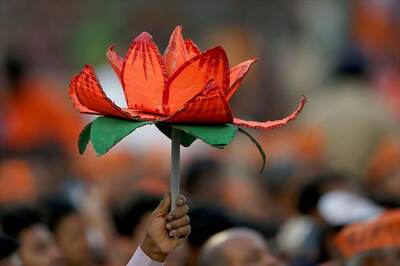
views
After success in the domestic market, the National Payments Corporation of India (NPCI) is planning to take the Unified Payments Interface (UPI) to the overseas markets, according to a Bloomberg report quoting NPCI International Payments CEO Ritesh Shukla. It will be a home-grown alternative to SWIFT, which is a Belgium-based cross-border payment system operator.
“We have displaced cash in India to a large extent and are now looking to repeat the success in cross-border corridors… Overseas Indians can use our rails to remit money inwards straightway into their bank accounts, and for the markets where Indians travel frequently, we will build acceptance for our instruments,” Shukla said, according to the report. He also said the remittances market, where it costs $13 on average to send $200 across borders, is ripe for disruption.
Indians overseas remitted $87 billion in 2021, the biggest inflow for any country tracked by the World Bank.
Under the RBI’s Liberalised Remittance Scheme, all resident individuals, including minors, are allowed to freely remit up to USD 2,50,000 per financial year (April-March) for any permissible current or capital account transaction or a combination of both. Further, resident individuals can avail of the foreign exchange facility for specific purposes within the limit of USD 2,50,000 only.
The Scheme was introduced on February 4, 2004, with a limit of USD 25,000. The LRS limit has been revised in stages consistent with prevailing macro and micro economic conditions. In case of remitter being a minor, the LRS declaration form must be countersigned by the minor’s natural guardian. The Scheme is not available to corporates, partnership firms, HUF, Trusts etc.
During 2021, India received $87 billion in remittances, and the US was the biggest source, accounting for over 20 per cent of these funds, the World Bank said in its latest report.
“Flows to India (the world’s largest recipient of remittances) are expected to reach $87 billion, a gain of 4.6 per cent with the severity of COVID-19 caseloads and deaths during the second quarter (well above the global average) playing a prominent role in drawing altruistic flows (including for the purchase of oxygen tanks) to the country,” the World Bank report stated.
India is followed by China, Mexico, the Philippines, and Egypt, the report said. In India, remittances are projected to grow three per cent in 2022 to $89.6 billion, reflecting a drop in overall migrant stock, as a large proportion of returnees from the Arab countries await return, it said.
Remittances to low- and middle-income countries are projected to have grown a strong 7.3 per cent to reach $589 billion in 2021, the bank said. This return to growth is more robust than earlier estimates and follows the resilience of flows in 2020 when remittances declined by only 1.7 per cent despite a severe global recession due to COVID-19, according to estimates from the World Bank’s Migration and Development Brief.
Read all the Latest News, Breaking News, watch Top Videos and Live TV here.




















Comments
0 comment